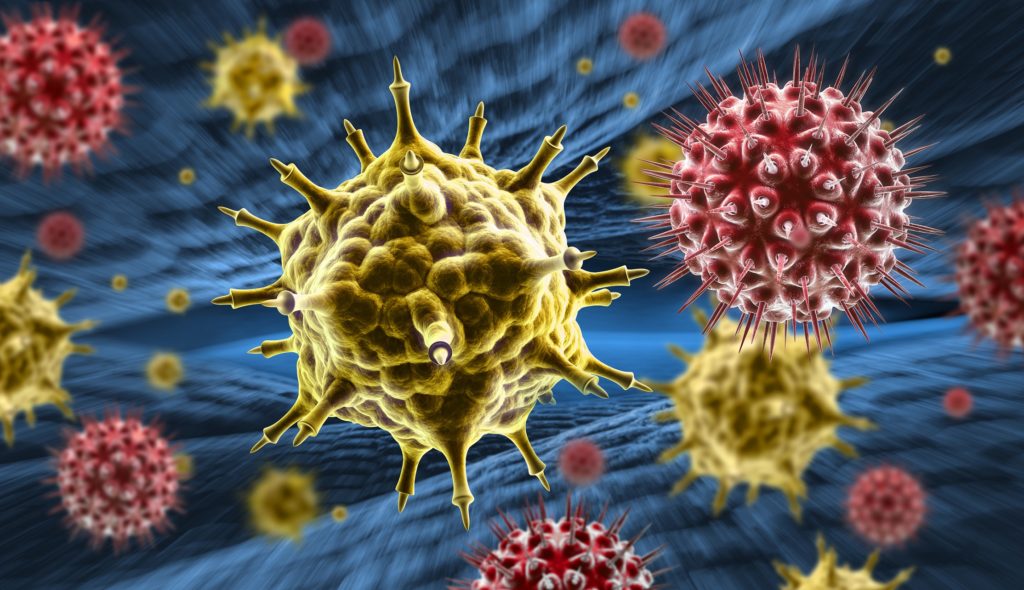With viruses, drug-resistant infections treat?
Genetically modified viruses against antibiotic-resistant bacteria can be used
It is now managed, in the case of a young girl with a life-threatening and against drug-resistant infection with Mycobacterium abscessus-to treat by means of genetically modified viruses.
In a recent study by the University of Pittsburgh is managed by the researchers, in order to fight against drug-resistant infection through the use of newly created viruses. The results of the study were published in the English scientific journal “Nature Medicine”.

Wound infection usually ends fatally
A 15-year-old cystic fibrosis patient received in September of the year 2017 a double lung transplant. After a week, the resulting cut wound was bright red. A against drug-resistant infection (Mycobacterium abscessus), you rapidly and led to the pain of wounds and the formation of swollen nodules on the ends of the spread. It is very sad when a lung transplant patient has such a wound infection, this leads in children to an agonizing course of the disease, which typically ends with the death, explain the authors of the study.
What is phage?
Since the usual standard treatments have failed, asked her mother to Alternatives. The doctors were on the so-called phage attention. Phage viruses, which can destroy bacteria. Researchers found a Cocktail of the first genetically modified phage, which have ever been used for the treatment. It was a composition that was directed against a Mycobacterium, a genus that also includes tuberculosis (TB).
After six months of treatment, the condition improved
After six months, the tailor-made phage infusions to heal her wounds and her condition improved without any serious side effects, report the researchers. This is a convincing so-called Proof-of-Concept, even if it is only a case study and the result of a rigorous clinical examination needs to be checked, add the authors.
Difference between treatment with Antibiotics and phage therapy
The so-called phage therapy, there are already since many years, but until recently, it was banned in most countries in the edge of medicine, mainly due to the use of antibiotics. In contrast to broad-spectrum antibiotics single phage normally kill only a specific strain of bacteria. This means that a treatment that is effective against the infection of a Person with another Person who is infected with a different variant of the bacterium, it fails. Phage can also be toxic. A series of recent Successes against antibiotic-resistant bacteria has revived of interest and major U.S. universities, prompted phage research centres. Drug-resistant TB strains are a particularly tempting target for phage therapy.
Bacteria in the mucus of the lungs
M. abscessus and other bacteria often colonizes the thick mucus that accumulates in the lungs of people with cystic fibrosis, a genetic disease, one of the world’s approximately 80,000 people are affected. The infections can lead to severe lung damage, for which then a transplant is the last resort. Isabelle, for example, had lost two thirds of their lung function. The infection is stopped, however, after the transplant and threatened her life.
Cocktail should prevent development of resistance
In a collection of more than 15,000 phage, the researchers looked for three months to phages, which can kill M. abscessus were isolated from wounds and sputum of the patient. Sure enough, they found three potential candidates. The researchers of the phage wanted to combine a Cocktail, in order to reduce the likelihood that M. abscessus developed a resistance, but there was a catch. Two of the three components are the so-called temperate phages, which have a repressor of genes that limit its lethality. In order to make these two phage reliable bacteria killer, away, the researchers, the Repressor of genes with a Gene-Editing technique, which was developed in the laboratory for the study of phage genetics.
How was the course of treatment?
Isabelle received in June 2018 for the first time, an Infusion of the phage cocktails. Within just 72 hours, their wounds started to dry. After six weeks of intravenous treatment every twelve hours the infection was gone almost. Traces of the disease remained, however, so that you will still receive twice-daily infusions and the treatment was applied directly to your remaining lesions. It is the girl but is now again possible to have a normal life as a Teenager to visit the school to spend time with friends and to take driving lessons for a driving license. The researchers are optimistic that the infection can be eliminated with the time.
Success promotes research in this area
The success had encouraged the study of phage, say the researchers. Other phages have been studied, they infected and killed M. tuberculosis in experiments, in test tubes. Phage could resist at some point as a useful weapon against drug duck strains of bacteria appear, the hope of the research team. (as)



